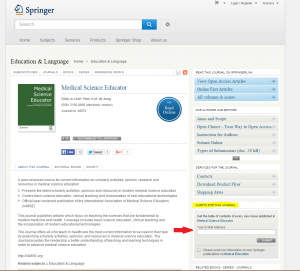As we all forge ahead building online classrooms and serving remote student bodies, IAMSE is here to keep you connected with your colleagues around the globe. We invite you to join us over the next few weeks for IAMSE Cafe, a virtual round table discussion where you control the conversations. Have you transitioned seamlessly online and into your home office, or do you still have some questions? Do you struggle to help your students through cancellations and postponements, or did your team find an ingenious way to move forward remotely?
Join our moderator, Dr. Kelly Quesnelle from Western Michigan University Homer Stryker M.D. School of Medicine beginning Tuesday, March 31 at 10AM EST for a series of conversations focused on how to help us all have the most successful instruction and transition possible.
Tuesday, March 31, 2020 at 10AM EST – MedEd Mailbag: The Virtual Teacher. Join Kelly as she takes member questions and opens the floor for discussion about how IAMSE members are dealing with and making the best of online teaching.
Thursday, April 2, 2020 at 10AM EST – Leading by Example: Practicing Self-care in a Time of Crisis. Adi Haramati of Georgetown University School of Medicine will lead a discussion about the importance of utilizing a number of mind-body techniques to reduce stress and promote resilience. We will also share how many of us have incorporated simple tools into our virtual reality with peers and learners.
April 7, 2020 at 10AM EST – MedEd Mailbag: Being Productive in Your Own Space. Join Kelly as she takes your questions about transitioning and adapting to an online learning environment while in your natural habitat. This open discussion will be led by the audience.
April 9, 2020 at 10AM EST – How Re-thinking and Re-designing Anatomy Instruction Into the Online Space Can Lead to Better Classroom and Cadaver Lab Learning Experiences. Join Jon Wisco from Boston University School of Medicine in a discussion about how the paradigm shift of what and when anatomy content can be taught, and how it contributes to classroom and lab learning experiences.
Join any of these webinars by clicking: https://zoom.us/j/237132753
We look forward to hearing from you next week!
